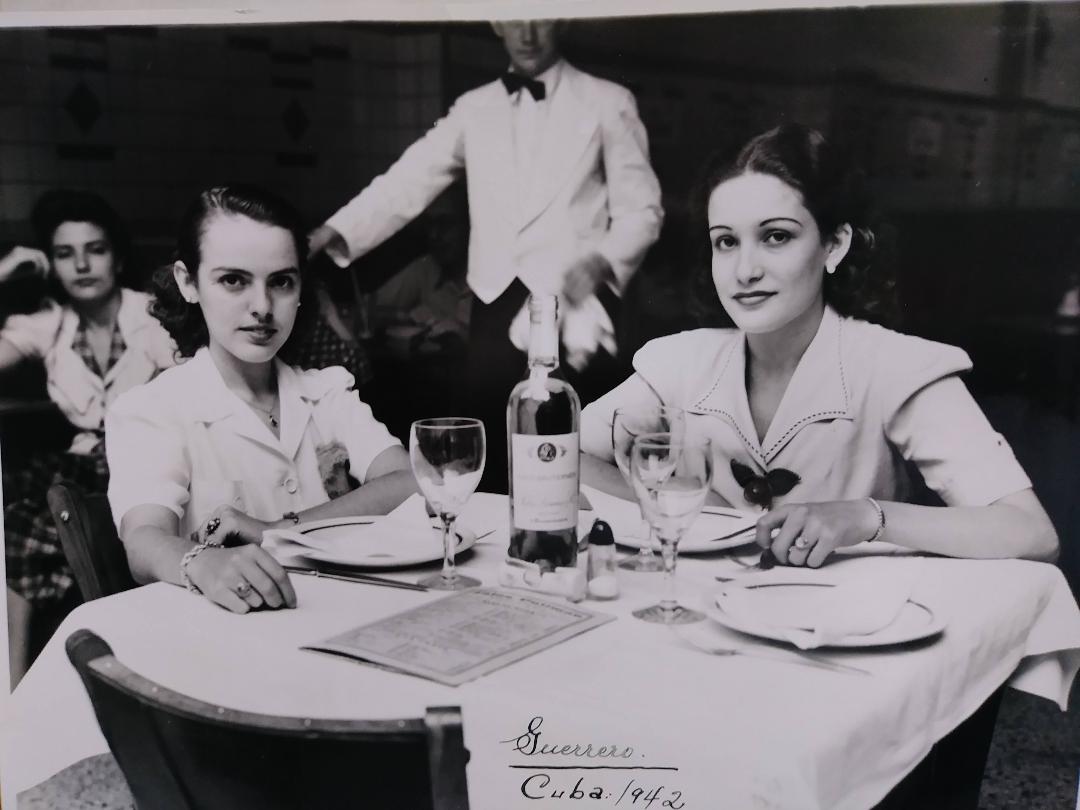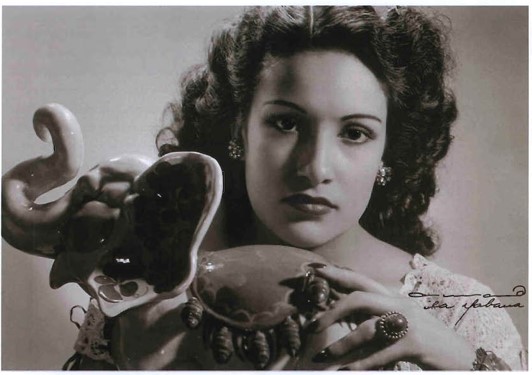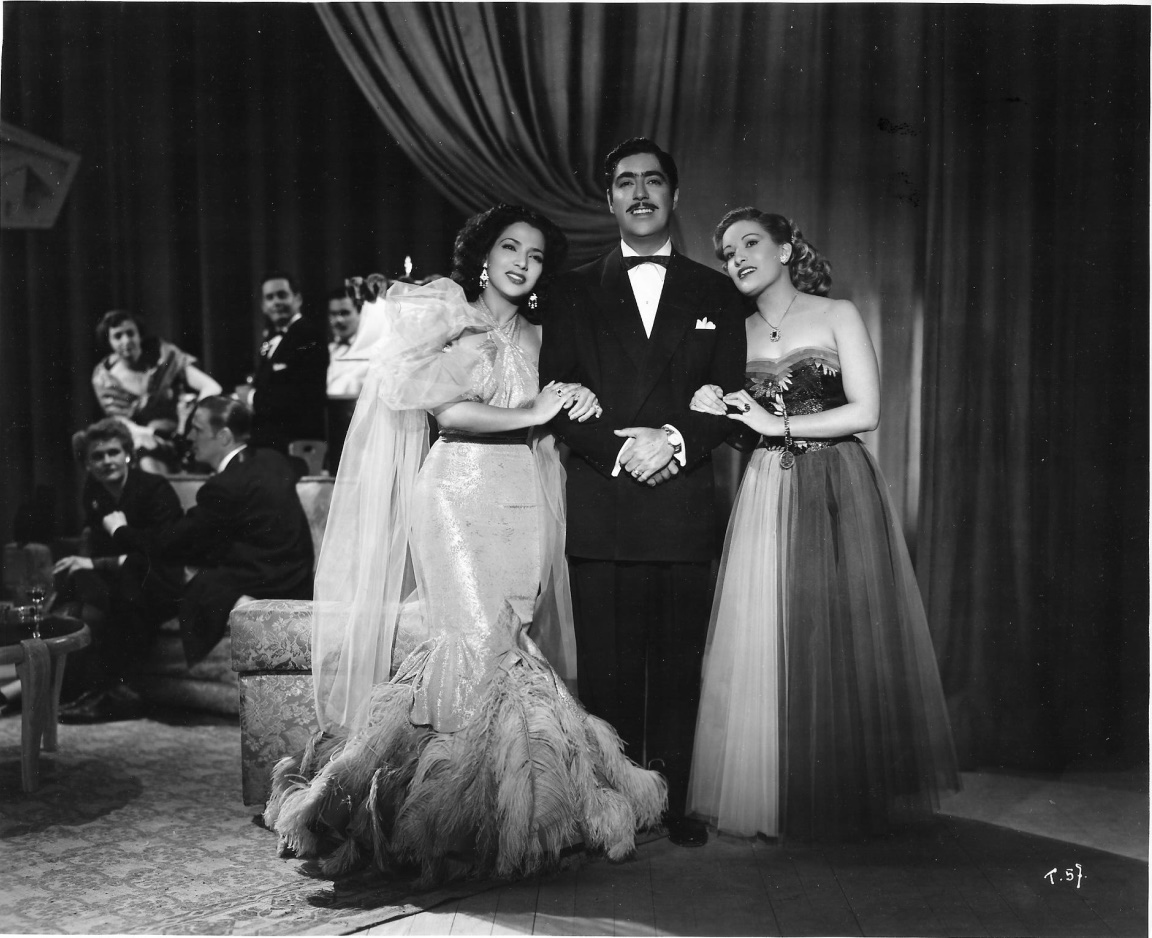D. A. Huse
In 1937, Celia Campos decided to try her luck at the XEQ radio station Amateur Hour talent contest. She would sing at parties for her family and friends. They would always tell her to try out for those amateur programs.
Before you actually sang in the program, you had to go to the station on a Tuesday to audition by performing your talent. In her case, she sang with their band. She explained to me that they did this three times and she was so nervous the first time that her friends gave her a cognac to relax, but it just burned her throat and she didn’t make the cut. Another time they gave her a tranquilizer, which made her sleepy, so she went home. It was 1939, when she was 16, that she eventually made it all the way to the actual show by shear willpower.
The show aired every Thursday from 8.00 to 9.00pm and the audience would clap to vote who should win. If they did not clap for you, a masked man rang a bell and kicked you off the stage. Chela received a standing ovation, and was allowed to continue on as everyone else performed. After it was over, she lost the contest to a man who imitated animal sounds! Only first place received a prize of $4,000.00 pesos and a contract to perform on the radio.

She was ready to leave when she was called aside. An XEW ‘crooner,’ Mr. Fernando Fernández, heard her voice that day and asked owner Emilio Azcárraga to give her a proper audition. He found her voice to be exceptional and gave her a contract on the spot to sing at XEW. She had a natural voice and never had a lesson. According to author Pável Granados, in his book XEW 70 años en el aire, over 7000 people auditioned for this Talent Show over the years, but only about 80 of them ever reached the final stages and went on stage to perform live at the Alameda Theater.
Chela Campos became the most listened-to voice of the 1940s, and she was one of the even smaller percentage of singers that became famous. She made the song ‘Bésame Mucho‘ famous and was the first person to record it. She was a close friend of its composer, Consuelo Velázquez. Chela also became famous for singing ‘Perfidia’ and ‘Frenesí’.
She was so hungry to perform and learn the ropes that she would sing at any radio station that asked her. She sang on XEFO, XEW & XEWW to name a few, but XEW was always her primary station. She was named by the trade magazines the ‘Best new talent’ of 1941. But, sometime in 1941 or 1942 (Aunt Chela never gave us exact dates), the XEW fired her for signing a union petition to strike. XEW was a member of AMER (Asociación Mexicana de Estaciones Radiodifusoras), and Chela found herself literally boycotted from all radio performances, whether at XEW or any other AMER-affiliated radio station. The petition she signed had been presented to her by a co-worker, but Chela had not read it thoroughly and, per her words to me, signed it to show her solidarity to the group.

She was terribly missed by the public, and numerous newspaper articles called on the executives at XEW to bring her back. Many asked, ‘How can XEW showcase so many foreign singers when our own Chela Campos has been removed from the radio?’ Chela did eventually return to XEW and performed there for many years, well into the late 1950s. She was such a regular at the station, and so well loved by the public, that she was asked to contribute her signature to be cast in bronze and permanently inserted in the marble flooring of the building. To this day her signature is there, alongside those of her fellow singers and performers.
In 1942 she made her first movie, when the director Indio Fernandez cast her to appear in La isla de la pasíon, in which she played a secondary role, as ‘Coquito;’ her name appears on the movie posters. The film was shot in Acapulco and released on August 6th, 1942. (If anyone has a copy of this movie, or can find it on the internet, please let us know!) Chela also had a cameo role that year in Virgen de medianoche, as a nightclub singer.
In 1944, Chela had a role in Imprudencia, before being directed by Fernando de Puentes in her next movie—La mujer sin alma—in a supporting role to Mária Félix. Chela was a nightclub singer in Toros, Amor y Gloria (1944), where she appeared alongside Sara Garcia and Maria Antonieta Pons, and in El hombre sin rostro (1950). Chela was the singing voice for many actresses in other films, but never listed in the final credits.
The public enjoyed these movies, and in her last movie—Del rancho a la televisión—Chela shared a starring role with Luis Aguilar and María Victoria. This movie, released in 1953, was directed by Ismael Rodríguez and they brought to film the story of how Luis Aguilar became famous at XEW via the Talent Show Contest. The film mirrored Chela’s experiences in that it showed Luis Aguilar losing the contest to a man who made animal sounds! In the movie, Chela winds up with Luis Aguilar as her love interest. She told me that he apologized right before the last scene, in which they shared a passionate kiss. He was afraid that his bad breath due to excessive smoking would offend her; she told me that she was far from offended, because he proved to be a very good kisser!

This would turn out to be her last movie. She described to me how the director had tried to accost her in his limo and became furious when she turned him down. He had offered to take her to her home in Polanco. But, when this happened, she bolted out of the car at a red light on Avenida Insurgentes, and began to walk until she found a taxi. It was around 2.00am. Her refusal of the proverbial ‘casting couch’ scenario meant that she was never asked to be in another movie.
Career-wise, this was not a problem because she still was very well received on the radio, and began doing tours, making appearances all around the country. She worked at numerous Carnivals in Veracruz and many Charreadas (displays of horsemanship, akin to a rodeo) in Guadalajara and all over Northern Mexico. It was during this time that she also traveled internationally, to Cuba, Venezuela and the USA.
The next and final installment of “Our Aunt Chela,” will focus on her memorable and much-loved appearances in Mexico City nightclubs.
- Part One: Our Aunt Chela: international singer Chela Campos, aka The Lady with the Crystal Cane
- Part Three: Our Aunt Chela: Chela Campos – Nightclub and theater singer
